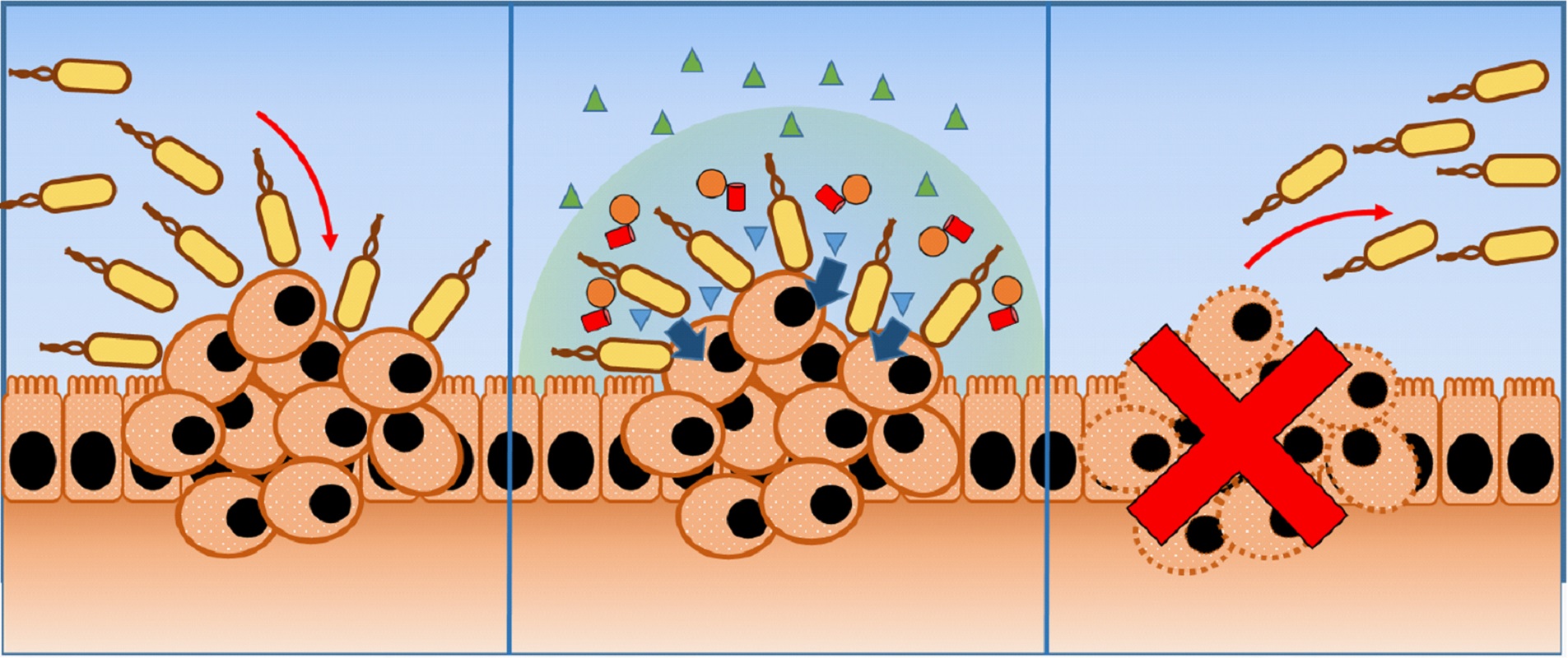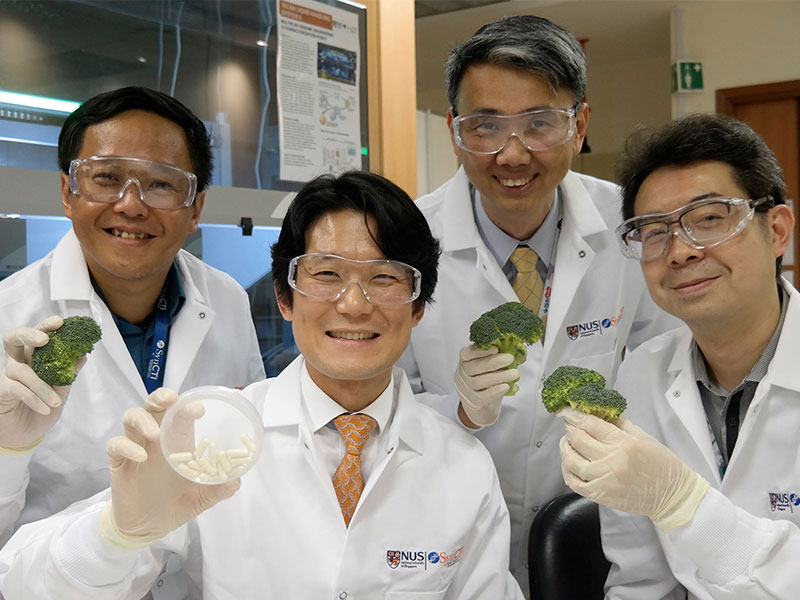Killing Colorectal Cancer Cells with Engineered Bacteria and Broccoli Extract Combo
Colorectal cancer is one of the most common cancers in the world, especially the developed world. Although the five-year survival rates for earlier stages of this cancer are relatively good, at later stages survival goes down and the risk of cancer recurrence goes up considerably.
To help address this problem, a team of researchers from the Department of Biochemistry, NUS Medicine, have found a way to turn a humble cocktail of bacteria and vegetables into a targeted system that seeks out and kills colorectal cancer cells. The study, which was led by Dr Chun-Loong Ho, was published online and in the January 2018 issue of Nature Biomedical Engineering.
At the heart of this cancer-targeting system is an engineered form of E.coli Nissle, a harmless type of bacteria found in the gut. Using genetic techniques, the team
engineered the bacteria into a probiotic that attached to the surface of colorectal cancer cells and secreted an enzyme to convert a substance found in cruciferous vegetables (like broccoli) into a potent anticancer agent. The idea was for the cancer cells in the vicinity to take up this anticancer agent and be killed. Normal cells cannot perform this conversion, nor are they affected by the toxin, which targets only colorectal cancer cells.
The mixture of engineered probiotics with a broccoli extract or water containing the dietary substance killed more than 95% of colorectal cancer cells in a dish. Strikingly, the probiotics-vegetable combination reduced colorectal cancer tumours by 75%. Also, the tumours that were detected were three times smaller than those in controls which were not given the mixture.

Orally administered engineered bacteria bind to the surfaces of colorectal cancer cells (a). Upon binding, the bacteria produce the myrosinase enzyme. Myrosinase converts glucosinolate, a substance found in cruciferous vegetables, into a toxin that specifically kills colorectal cancer cells (b). When the cancer cells are cleared, the engineered bacteria are released from the surface of the intestinal wall (c).
Dr Ho and Associate Professor Matthew Chang, along with colorectal cancer specialist Dr Yong Wei Peng, Associate Director (Research) and Senior Consultant from the National University Cancer Institute, Singapore (NCIS), envision that these probiotics could be used in two ways: 1) prophylactically, i.e. as prevention, and 2) to mop up cancer cells remaining after surgical removal of tumours.
“The day may come when a weekly dose of the engineered probiotic drink with a healthy diet of cruciferous vegetables would suffice to prevent colorectal cancer or reduce recurrence after surgery,” Dr Ho suggested. He added, “Mothers are right after all – eating vegetables is important.”
A/Prof Chang added, “One exciting aspect of our strategy is that it just capitalises on our lifestyle, potentially transforming our normal diet into a sustainable, low-cost therapeutic regimen. We hope that our strategy can be a useful complement to current cancer therapies.”

(From left to right) Dr Ho Chun Loong, A/Prof Matthew Chang, A/Prof Lee Yung Seng, and A/Prof Yew Wen Shan
References
1. Ho CL, Tan HQ, Chua KJ, Kang A, Lim KH, Ling KL, et al. Engineered commensal microbes for diet-mediated colorectalcancer chemoprevention. Nat Biomed Eng. Jan 2018.
2. Globocan 2012: Estimated cancer incidence, mortality and prevalence worldwide in 2012. http://globocan.iarc.fr/Pages/fact_ sheets_cancer.aspx?cancer=colorectal
3. Wong CKH, Law WL, Wan YF, Poon JTC, Lam CLK. Health-related quality of life and risk of colorectal cancer recurrence and Allcause death among advanced stages of colorectal cancer 1-year after diagnosis. BMC Cancer. 2014;14:337.
